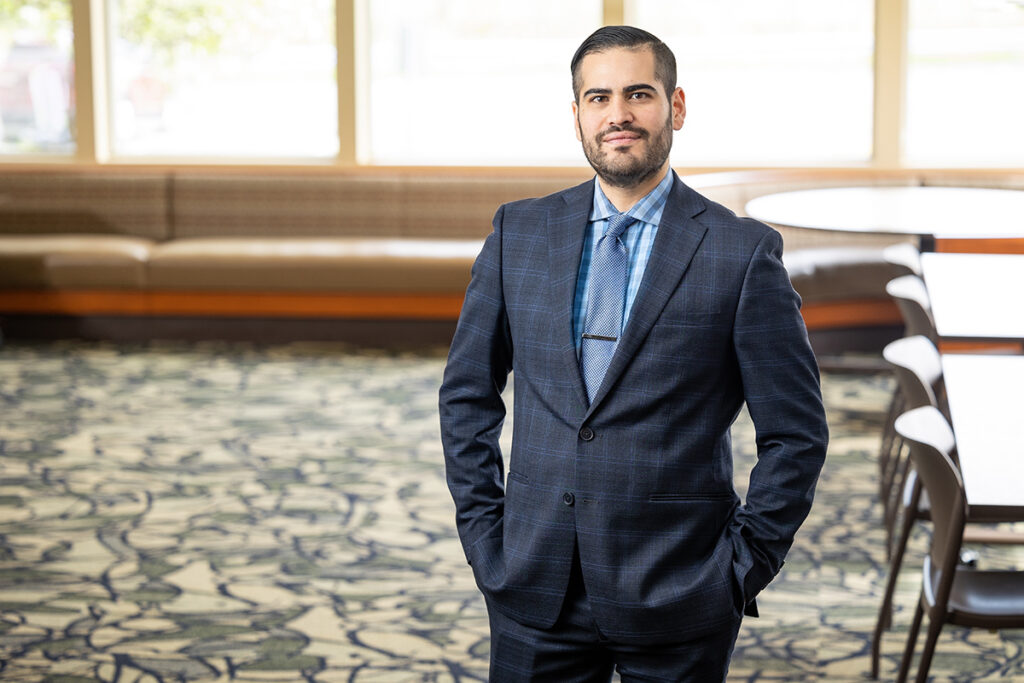From the frontlines of healing: A doctor’s view on National Recovery Month and substance use disorder

In the world of health care, the journey towards recovery holds a profound significance. September marks National Recovery Month, a time dedicated to increasing public awareness surrounding mental health and addiction recovery. In this blog post, we turn to the perspective of a dedicated physician who has been on the frontlines of this battle, Dr. Joshua Kaufman.
Why I became an Addiction Psychiatrist

My commitment to becoming an addiction psychiatrist occurred after an unexpected encounter during medical school. While rotating in the Emergency Room, I was assigned to see a patient who had been brought to the hospital after experiencing an opioid overdose from heroin. I still remember the moment I pulled back the patient’s curtain in the exam room. Right in front of me, on the ER bed, was one of the most talented athletes from my high school. He was also someone who I had played sports with since the age of nine.
“How did this happen?”, I asked myself. We were so similar. We shared similar childhoods, grew up in the same neighborhood, had comparable family structures and support, similar goals, and values.
In that moment, I realized that if this could happen to him, it could happen to anyone. Seeing my friend on the ER bed, overwhelmed by sadness and hopelessness, sparked a passion and determination within me, driving the belief that there was something more I could do to help.
This encounter deeply influenced my acceptance and compassion for individuals living with substance use disorders and served as a powerful inspiration for my mission of becoming an addiction psychiatrist.
What is a substance use disorder?
A substance use disorder is when repeated use of a substance (examples: alcohol, tobacco and/or other drugs) leads to significant problems and/or distress in one’s life. These problems can include difficulty or inability to meet responsibilities at school, work or home, or the development of health problems.
Who develops substance use disorders?
Anyone can develop a substance use disorder. The development of a substance use disorder affects people from all walks of life, including all ages, cultures, genders, level of education and socioeconomic status. Substance use disorders affect our families, our friends, and our community.
Are substance use disorders treatable?
Yes!
A substance use disorder is treatable. Research on the science of addiction and the treatment of substance use disorders has led to the development of evidence-based treatments (including both medication and therapy options) that help people with a substance use disorder stop or reduce their substance use so that they can resume living productive lives. This is known as being in “recovery”.
How can you get treatment for substance use disorders as a CDPHP member?
At CDPHP, your emotional health is considered to be just as important as your physical health. That’s why we offer a wide variety of treatment options and resources to support all your mental health care needs, including treatment for substance use disorders. We partner with both in-person and virtual mental health care providers to get you the care you need, when you need it.
If you’re ready to take the first step, we’re here for you. Our Behavioral Health Access Center is made up of a team of mental health care experts who understand what you’re going through and can point you in the right direction.
To get started, give us a call at 1-888-320-9584 between the hours of 8 a.m. and 6 p.m.., Monday through Friday.
If you need help after hours or on weekends, simply call 1-888-320-9584 and press “1” to be connected to our after-hours hotline.
You can also visit Mental Health & Substance Use for more information and to learn more.
 The Daily Dose
The Daily Dose
Mari Aguilar
As a person that had contact with someone with an addiction, Dr. Kaufman’s story moved me. The fact that it is treatable is a great consolation for many suffering this illness, their families and friends. Patients need to make the 1st step and this is the difficult part.Thank you for sharing .
Dr. Joshua Kaufman
Dear Mari: Thank you so much for your wonderful feedback and for sharing your experience. We are all in this together. Thank you for being an advocate!